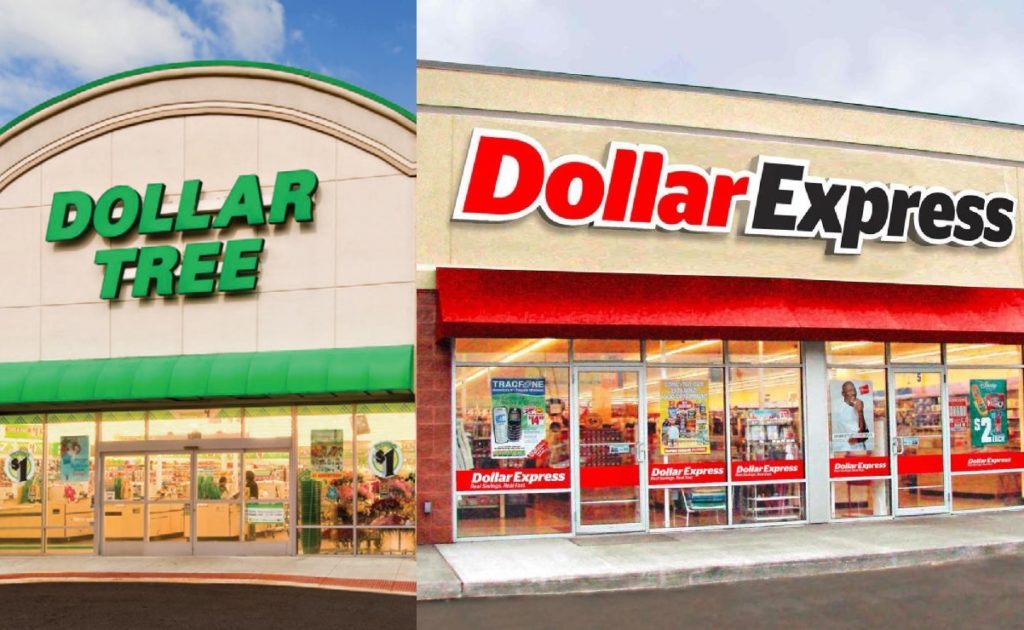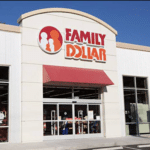
(UPDATE: On April 27th, the FTC announced that it has approved the sale of the 323 stores to Dollar General.)
Hundreds of stores named “Family Dollar” are closing across the country, but the owner of the company named “Family Dollar” says its own stores are doing just fine. And it’s now asking federal regulators to help ensure its competitor doesn’t confuse customers by suggesting otherwise.
It’s the latest sign that – despite a fast-tracked request to approve a sale of the closing stores, and a swift resolution to a recent legal dispute – the latest dollar store drama shows no sign of letting up.
And Coupons in the News has even become a part of the story – in a peripheral kind of way.
Nearly two years ago, in order to gain regulatory approval of its merger with Family Dollar, Dollar Tree agreed to divest 330 Family Dollar stores to private equity firm Sycamore Partners. After a transition period, Sycamore had planned to rebrand the stores as “Dollar Express” next month.
Instead, a few weeks ago, Sycamore announced plans to shutter the 323 stores that remain open, then sell them to Dollar General.
And now Dollar Tree has expressed its objections to that plan in a letter to the Federal Trade Commission, during a just-concluded public comment period on the sale, which will require FTC approval.
“Dollar Tree writes to correct the inaccuracies in Sycamore’s application, and to request a competition-enhancing limitation to Dollar Express’s plan to liquidate its current merchandise,” wrote David Schwartz, Dollar Tree’s lead antitrust attorney.
In explaining the rationale behind its decision to close and sell its stores, Sycamore pointed a finger at Dollar Tree. Dollar Tree tried to undermine it by opening dozens of new Family Dollar stores very close to existing Dollar Express-owned Family Dollar stores, and it has plans to open dozens more, Sycamore alleged.
Dollar Tree rejects that charge. “Dollar Tree competes fiercely for customers, but it has never attempted to drive Dollar Express out of business,” Schwartz’s letter reads. Dollar Tree can “open stores wherever it wants, and the stores it has opened and plans to open are part of its regular business strategy.”
Sycamore also said it could not succeed due to “an overall decline in sales in the dollar store industry”, a characterization that Dollar Tree also disputes. “Dollar Tree… strongly disagrees with Dollar Express’s allegations concerning the profitability and prospects of the dollar store segment,” Schwartz wrote. “Dollar Tree believes that the Dollar Express stores were performing well, contrary to Dollar Express’s allegations.”
And two weeks after filing, then swiftly dropping, a lawsuit alleging that Sycamore had not paid for $6.8 million in recent deliveries, Dollar Tree pointed out in its letter that Sycamore still owes it some $50 million “for goods and services provided for which it has not paid, as well as amounts that will become due in the future, including for merchandise they caused Dollar Tree to order but of which Dollar Express will never take delivery… We very much expect to be paid what we are owed.”
Finally, Dollar Tree wants to make sure that Sycamore’s decision to bail on its stores doesn’t lead shoppers to believe that Family Dollar itself is having financial troubles, or closing down. The confusion stems from the fact that the Sycamore-owned stores are still called Family Dollar. They were about to be rebranded as Dollar Express, but that won’t happen now. Instead, 323 Family Dollar stores will be shutting down, which Dollar Tree believes could reflect poorly on its own Family Dollar business.
“Dollar Express has not posted adequate signage clarifying that they are Dollar Express rather than Family Dollar stores,” Schwartz complains. So Dollar Tree wants the FTC to ensure that Sycamore uses “store closing” signs and not “going out of business”, lest anyone think that the Family Dollar company is shutting down. “Not surprisingly, there has already been confusion, with news headlines suggesting that Family Dollar is closing more than 300 of its stores, which is certainly not the case.”
One of the “news headlines” that Dollar Tree singles out by name is Coupons in the News‘ April 4th article, “Hundreds of Family Dollar Stores Sold to Dollar General“.
Confusing? Perhaps, to some. But accurate? Yes.
The CITN headline doesn’t “suggest” anything about the Family Dollar company. It states that hundreds of stores known to shoppers as Family Dollar are being sold, which is exactly what’s happening. The stores are still named Family Dollar, after all, no matter who owns them. And a headline reading “Hundreds of Dollar Express Stores Sold to Dollar General” would be meaningless to most readers, since for all intents and purposes, there currently are no dollar stores called Dollar Express, and few shoppers are aware of which company currently owns their local Family Dollar store. Unless they read the full story, that is, which explains everything in detail.
Dollar Tree and Sycamore caused the confusion by allowing for such a long transition period, during which the divested stores would still be named Family Dollar, and still supplied by Dollar Tree. So calling out the media for confusing the issue, is simply blaming the messenger for reporting on a confusing issue.
At any rate, Dollar Tree’s complaints weren’t the only ones sent to the FTC during the public comment period. Employees, shoppers and concerned citizens also wrote in to object to – or in some cases, reluctantly accept – the store closures and proposed sale to Dollar General. “The FTC has no choice but to approve the sale,” one commenter wrote. “The original deal to hive off 330 stores… came apart at warp speed in yet another monumental failure on the part of the FTC. This is on the heels of the Albertsons debacle with a similar fact pattern, and with the Walgreens/Rite Aid/Fred’s matter waiting in the wings to make it a ‘hat trick’ for the gang who could not shoot straight.”
Now that the public comment period is over, the FTC will consider whether to approve Sycamore’s plans. Only then might the fate of your local Family Dollar store be settled – no matter which company currently owns it.
















The notion that Dollar Express was even remotely viable was absurd. 323 stores spread across 35 states was nowhere near the critical mass needed to form a profitable entity that could compete with Dollar Tree, Family Dollar and Dollar General, all of which dwarfed DE in store count and buying power. The stores should have gone to DG in the first place. Another monumental failure by the FTC to create another “mini-major.”